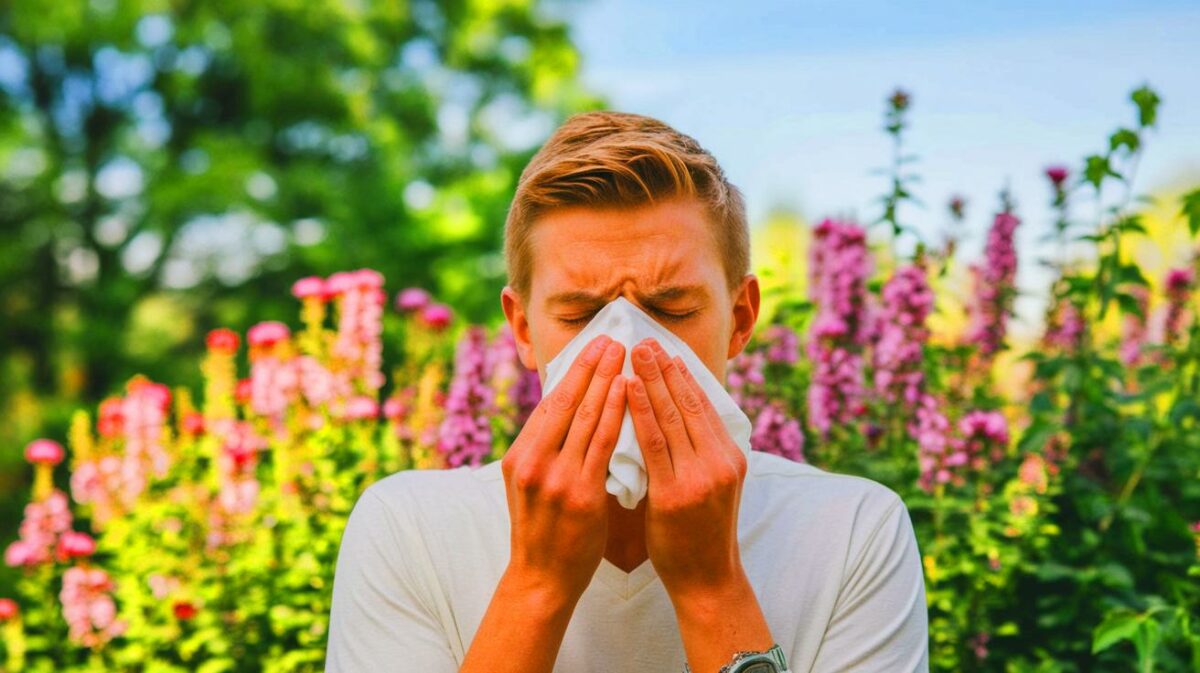| IN A NUTSHELL |
|
The winter seemed interminable, but at last, we are seeing its end. The days are growing longer, the sun is making a comeback, and terraces are filling up each evening. However, for many, these simple pleasures come with a significant burden: the resurgence of pollen allergies. For those affected, the situation is not improving. Reports suggest that climate change is exacerbating the problem, causing pollen seasons to extend and intensify, making this issue not just an inconvenience but a growing health concern for millions.
The Growing Allergy Epidemic
The American Asthma and Allergy Foundation (AAFA) has released a report predicting that 2025 will be a particularly challenging year for hay fever sufferers. In the United States, the issue is becoming more severe, affecting one in three adults and one in four children. In France, the number of people with pollen rhinitis has tripled over the past 25 years. The main culprit behind this alarming trend is climate change. As temperatures rise, pollen seasons start earlier and last longer, with plants producing more pollen due to increased carbon dioxide levels.
The extension of pollen seasons means that some, like grasses and ragweed, now overlap, creating a longer and more intense allergy season. For most people, seasonal allergies are a persistent nuisance but are manageable. However, when they impact millions simultaneously, they become a significant public health issue. Allergies can lead to substantial economic losses, including work absenteeism, increased healthcare costs, and medication expenditures.
Understanding the Climate Connection
The rise in allergy sufferers is closely linked to two primary mechanisms driven by human reliance on fossil fuels. The burning of coal, oil, and natural gas increases atmospheric carbon dioxide concentrations, encouraging many plant species to produce more pollen. Urban areas are not exempt from these effects. On the contrary, cities provide an ideal environment for allergens like ragweed, with pollen settling on clothing and surfaces, turning daily life into a battle for allergy sufferers.
Forest fires also contribute significantly by releasing large amounts of carbon dioxide, further fueling climate change and creating conditions conducive to allergy development. This vicious cycle only worsens the situation, making it clear that addressing climate change is essential to mitigating these effects and improving public health.
Managing the Allergy Burden
Despite the grim outlook, there are ways to manage allergies. After consulting with an allergist, individuals can be prescribed antihistamines and nasal sprays to alleviate symptoms. Kenneth Mendez, director of the AAFA, advises starting treatment about two weeks in advance due to the time it takes for medications to become effective. However, preventative measures are equally crucial. Changing clothes after being outdoors and keeping windows closed during peak pollen times can help reduce exposure.
Still, the most effective long-term solution remains combating climate change to slow the rise in temperatures, reduce forest fires, and prevent the proliferation of allergy-inducing plants. By taking action now, we can work towards a future where allergies are less of an inevitable burden.
Looking Forward: A Call to Action
While medications offer some relief, the root cause of the allergy epidemic lies in our changing climate. Addressing this global issue requires concerted efforts to reduce fossil fuel consumption, promote sustainable practices, and protect our environment. As individuals, we can contribute by supporting policies and initiatives that aim to curb climate change and by making environmentally conscious choices in our daily lives.
As we face the reality of increasingly severe allergy seasons, it is crucial to consider the broader implications of our actions on the planet. How can we take meaningful steps to combat climate change and protect future generations from the growing burden of allergies? The answer lies in our collective responsibility to foster a healthier, more sustainable world.
Did you like it? 4.4/5 (22)









Interesting article, but isn’t it a bit of a stretch to blame everything on climate change? 🌍
Thank you for explaining the connection between allergies and climate change. I had no idea!